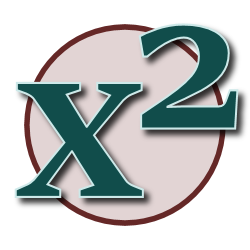Understanding Variables as Pronouns
Lesson Plans > Mathematics > AlgebraSlide Show
PRONOUN
A PRONOUN is a word that takes the place of a noun.
VARIABLE
A VARIABLE is a letter that takes the place of a number.
WHO threw THAT?
WHOEVER did IT is in big trouble!
THEY are getting a detention for THIS.
The cost of a toy plus the cost of a shirt is $45.
T = the cost of a toy
S = the cost of a shirt
 5.3327·1017
5.3327·1017Whoever did THAT will get a detention.
THAT won't be fun.
Lesson Plan/Article
Understanding Variables as Pronouns

"I don't like Algebra. I don't understand why we can't just do numbers in math class, and letters in English."
"I liked math until they started mixing numbers and letters together."
"If a variable represents a number, why can't we just use a number?"
These are the kinds of comments Algebra teachers get every year. For some students, wrapping their minds around the concept of a variable is frustrating, and for those of us who have been doing Algebra for years, and for whom the process of assigning variables is second nature, this difficulty can be surprising.
It may be helpful for your students if you introduce variables by way of an analogy from grammar. A variable is, in a sense, a pronoun.
What are pronouns? Pronouns are words like you, he, she, it, and they. These words are "stand in" words; they represent a noun (a person, a place, or a thing).
We use pronouns all the time. In fact, I just used three of them (We, I, and them).
Suppose that I'm teaching my Algebra class, and while I'm writing on the board, and my back is turned to the class, a student throws a paper airplane across the room. This is, of course, against the classroom rules, so I turn around and I say...
"WHO threw THAT?" and "WHOEVER did IT is in big trouble!" and "THEY are getting a detention for THIS."
Notice that I used a couple pronouns in each sentence. Imagine trying to say those sentences without pronouns! In those sentences there are two very different reasons for using pronouns.
Representing Missing Information
If I didn't have pronouns like who, whoever, and they, I'd be in serious trouble, because I wouldn't have any good way of saying what I want to say. Why? Because these pronouns stand in for something I don't know. Without the word who, I couldn't even ask my question. I'd have to go around the classroom asking "Did Jake throw the airplane? Did Martha throw the airplane? Did Maggie throw the airplane?" If I only have two or three suspects, it's a nusiance, but it's doable - but what if I have twenty-five students in my class?
Simplifying
If I didn't have words like that, it, and this, all of my sentences would have been longer and more cumbersome:
"Who threw the paper airplane? Whoever threw the paper airplane is in big trouble. They are getting a detention for throwing the paper airplane."
Notice how awkward and lengthy that is without the pronouns! Pronouns can make sentences more concise and simple.
Variables are math pronouns, and we use them for exactly the same two reasons we used pronouns above: to simplify, and to represent something we don't know.
Representing Missing Information
This is the most common use for variables. The variable represents a number that we don't know. It's a missing-number pronoun, and it serves the same purpose as the words who, whoever, and they in the example above.
If I have a sentence that reads "The cost of a toy plus the cost of a shirt is $45," there are two pieces of information I don't know: the cost of a toy, and the cost of a shirt. The cost of a toy is a number, so instead of using a regular pronoun like he or they, I'll use a math pronoun, or a variable. I'll say something like T = the cost of a toy, and S = the cost of a shirt. T and S are my math pronouns. They are variables.
Whenever you use a variable, you should write out what it's a pronoun for. And remember that a variable will represent a number, not a person or an object. I don't know how many times I've seen a student write something like T = toy. To which I reply, "The toy is a number? That doesn't seem like a very fun toy!"
Simplifying
Suppose I'm working on a long math problem, and one of the numbers I have to deal with is 5.3327·1017
5.3327·1017 5.3327·1017
5.3327·1017In other words, variables are great for lazy mathematicians who don't want to keep writing the same thing over and over!
Conclusions
In English grammar, the same pronoun can be used to represent more than one thing. For example, "Whoever did THAT will get a detention. THAT won't be fun." In the first sentence, that represents "throwing the airplane," but in the second sentence, it represents "detention." That's okay when writing/speaking English sentences, but in mathematics, we want to be a bit more precise; once you've picked a variable, it has to mean the same thing through the entire problem!
There's no reason to panic over variables - they are as natural (and as useful) as pronouns. In fact, in your mind you might want to call them "math pronouns." And every time you see a variable, you should automatically think, "What does that 'pronoun' represent?"
When speaking, we use pronouns so commonly that we don't even realize that at a subconscious level, whenever we hear pronouns, our brains are asking, "What does that word represent?" Eventually, you'll use variables so much that it'll be just as easy as using pronouns when speaking!

